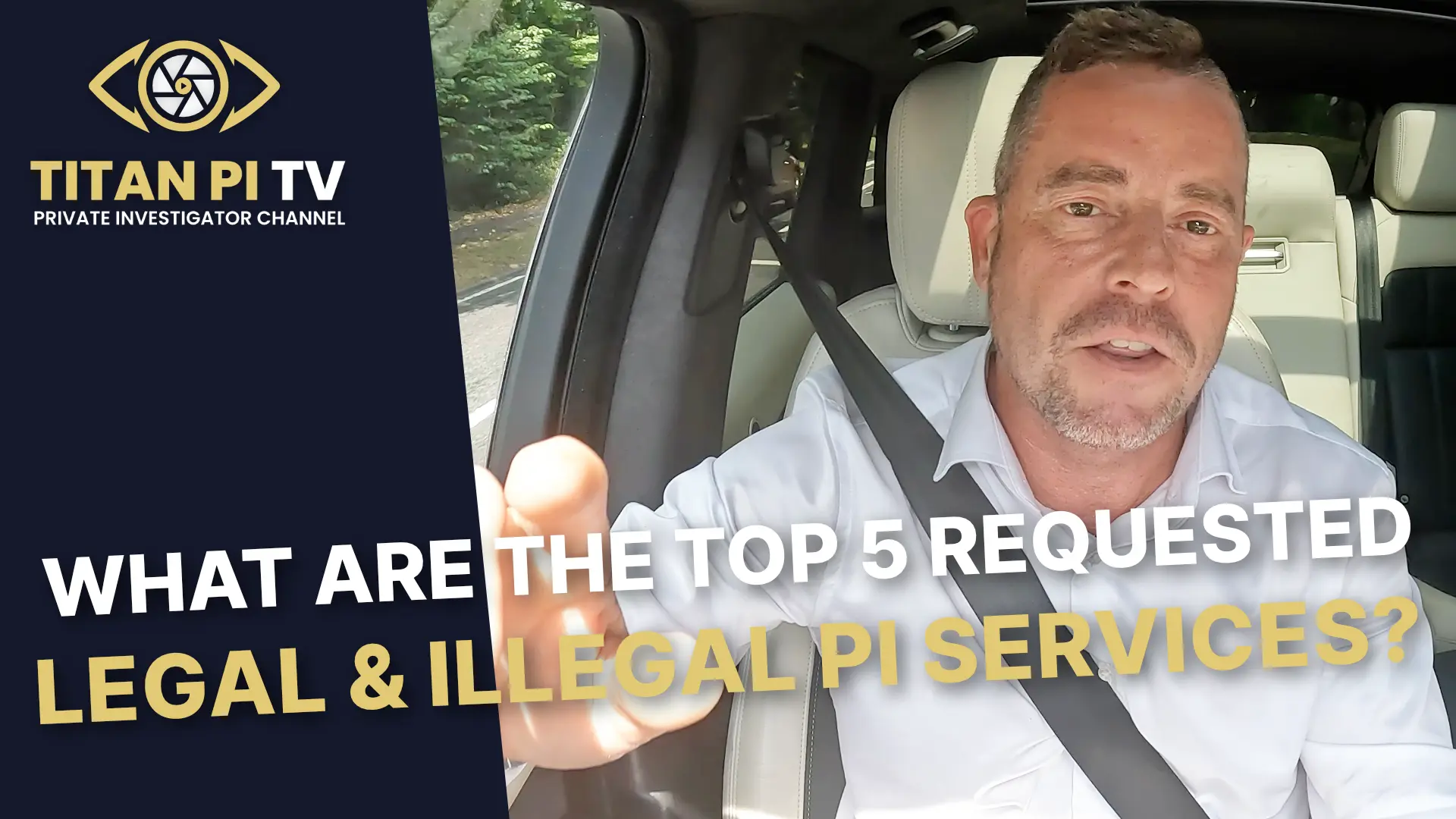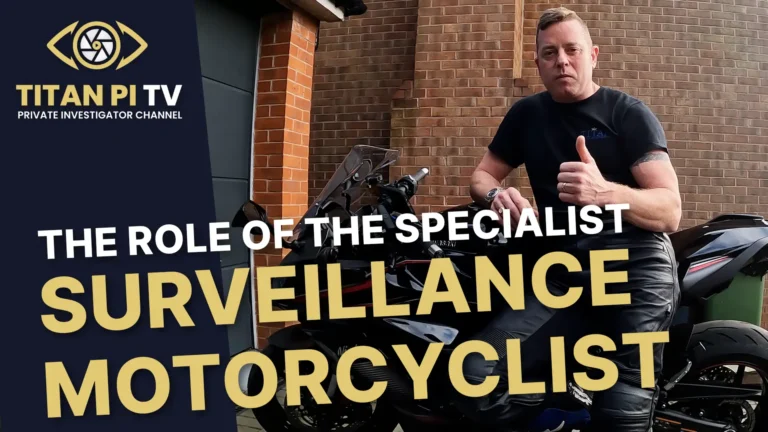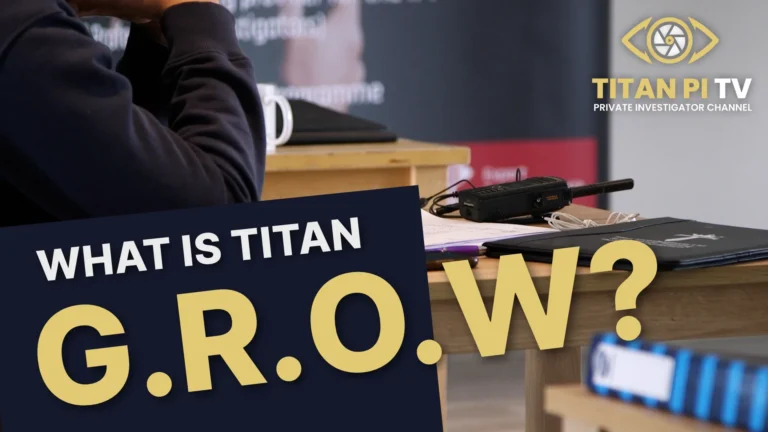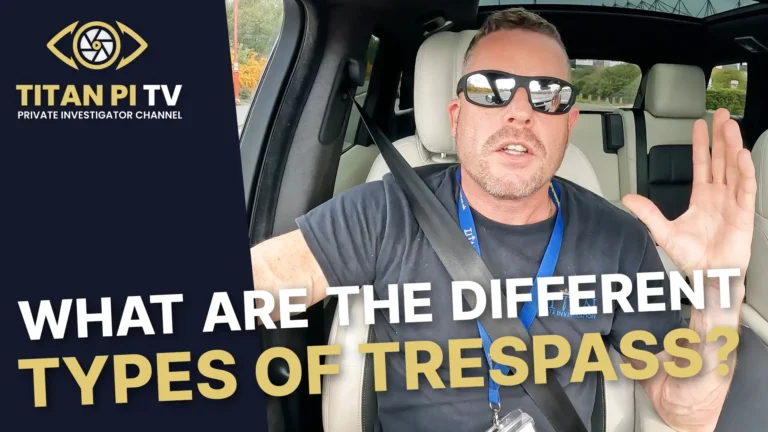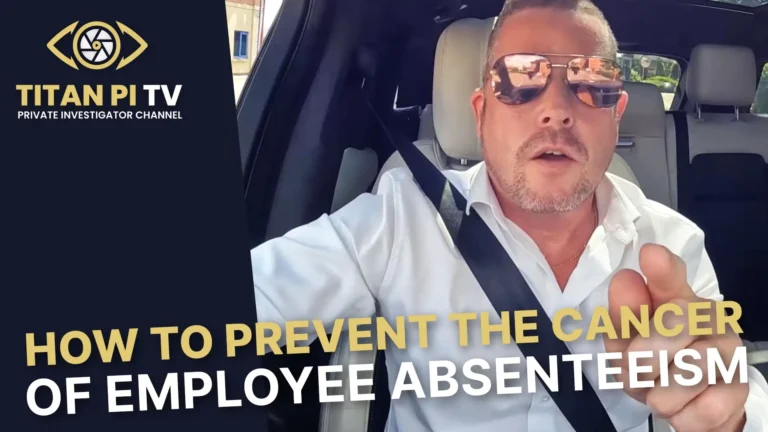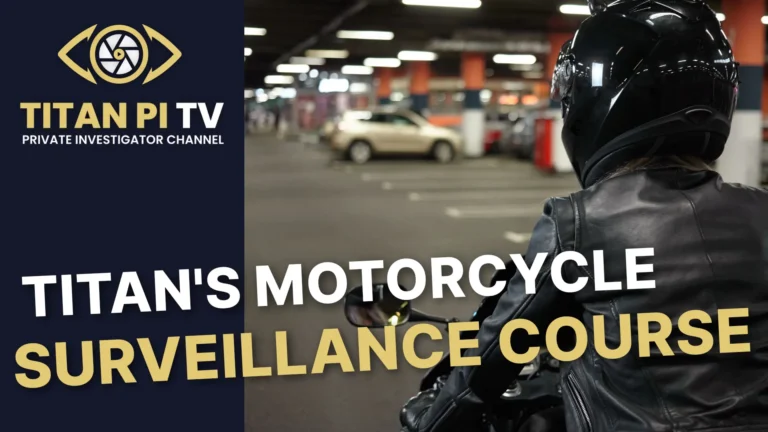What are the Top Five Most Requested Legal and Illegal PI Services?
Titan PI TV Reveals the Top Five Most Requested Legal and Illegal PI Services in the UK
Titan PI TV’s latest episode lifts the lid on what the British public and businesses most often ask private investigators to do—both the services that are entirely lawful and the ones that are strictly off limits. Hosted by Titan Private Investigation Limited’s managing director, Simon Henson, the episode offers a clear-eyed, practical look at the realities of the profession, with examples from front-line operations across Titan’s network of ten offices, from Truro in the South West to Manchester in the North West. In his characteristically direct style, Henson walks viewers through the five most requested legal services—person tracing, surveillance, graphology and handwriting analysis, technical bug sweeps, and lie detector tests—before turning to the frequent illegal requests his team refuses daily.
The UK’s most requested legal PI services
In the current climate, with mobility, remote work, and digital communications shaping both corporate and personal lives, demand for certain investigative services has risen sharply. According to Simon Henson, five offerings consistently dominate Titan’s inbox—each with legitimate use cases and a firm basis in UK law and professional standards.
1) Person tracing: from process serving to finding long-lost contacts
Top of the list, “by far,” is person tracing. Henson explains that solicitors often instruct Titan to locate individuals when legal proceedings are about to commence, such as in divorce matters where one partner’s location is unknown. Being able to accurately identify and confirm a current residential address is vital before legal process can be served. The same skillset helps recover debt by identifying the current whereabouts of debtors, and it’s equally useful for the public who wish to reconnect with long-lost friends or estranged family members.
Titan’s tracing service leverages legitimate data sources combined with investigative expertise to produce a verified, serviceable address. With a full name and date of birth, Simon says, investigators can typically locate individuals within 24 hours on a “no trace, no fee” basis—an assurance that underlines both confidence and compliance.
2) Surveillance: corporate misconduct and private relationship concerns
Surveillance remains a cornerstone of professional investigation and is Titan’s second most requested service. For corporate clients, one common use case is suspected employee misconduct linked to absenteeism. Where an employee has triggered an unsatisfactory attendance threshold and there is credible suspicion they may be working elsewhere or misrepresenting their circumstances, surveillance can help confirm the facts. Titan typically deploys two covert surveillance operatives to monitor movements and activity during the contracted hours the employee has reported off. The objective is not to pry but to gather objective evidence—conducted lawfully in public spaces—for an employer’s internal processes.
For private clients, the most frequent scenario is suspicion of infidelity. Here, the questions are simple: when, where, and with whom? Again, pairs of trained operatives work discreetly to document movements, associations, and where feasible, behavioural cues and body language. The deliverable, in either context, is clear, time-stamped, evidential material that can inform decisions—be that HR action or deeply personal next steps—without breaching privacy laws.
3) Graphology and handwriting analysis: signatures and authorship under scrutiny
Third on Titan’s list is graphology and handwriting analysis, which splits into two typical assignments. The first is signature verification, often arising from probate disputes where a signature’s authenticity is in question. Titan’s expert examiners review a questioned signature against a baseline of 10 to 12 known genuine signatures, assessing letter formations, pressure patterns, slant, spacing, rhythm, and other biometric features. The output is a formal report, suitable for legal proceedings, that sets out the examiner’s methodology, findings, and professional opinion on whether the same author executed the questioned and genuine signatures.
The second is authorship analysis, frequently involving anonymous or malicious communications—“poison pen” letters—within workplaces or communities. Here, investigators compare the anonymous writing against samples from a defined pool of potential authors. The analysis looks for consistent idiosyncrasies and features that indicate common authorship, enabling clients to identify the likely writer and take appropriate action. Both services are grounded in established forensic document examination practices, producing robust, reasoned conclusions rather than conjecture.
4) Bug sweeps (TSCM): protecting conversations, data and IP
The fourth most requested service is technical surveillance counter-measures, more commonly known as bug sweeps. These inspections cover vehicles and premises and are in demand from both corporate and private clients. Corporates in sensitive sectors, Simon cites aerospace, often call Titan after contractors have been on site, seeking reassurance that no covert audio devices, GSM transmitters, Wi-Fi bugs, or hidden cameras have been planted that could compromise confidential discussions or intellectual property.
Private clients come forward for similar reasons, particularly during contentious divorce or separation proceedings. When one party seems unusually well-informed about private conversations held at home, suspicions of illicit listening devices can run high. Titan responds by sending specialist technicians—ex-military professionals with government-grade experience—equipped with £50,000 to £80,000 worth of overlapping-spectrum equipment to identify and locate transmitters or recorders across a range of frequencies and modalities. The overlapping approach increases detection certainty. As Simon puts it, the team can provide “almost 100%” confidence on whether a device is present and whether it is transmitting or recording audio or video.
5) Lie detector tests: short, targeted polygraph examinations
Rounding out the top five is lie detection. In corporate settings, polygraph tests are often considered after incidents that suggest inside knowledge or collusion—such as a burglary where information appears to have been leaked. Titan’s approach is to design a short, focused 30-minute test that asks clear, specific questions: whether the subject gained financially from the incident, whether they were involved, and whether they shared confidential information. The aim is to corroborate or refute involvement as part of a wider, fair investigative process.
For private clients, the use case is frequently matrimonial trust. Typical questions aim to establish whether an individual has had sexual intercourse or other sexual contact with anyone else during a relationship. Titan’s pricing, stated openly by Simon, is £480 for a 30-minute test. As with all polygraph usage, context and consent are crucial; Titan positions lie detection as a tool to aid decision-making, not a substitute for due process or professional judgement.
The requests investigators must refuse—every day
After outlining lawful, legitimate services, Simon turns to what he and his team are asked to do “day in and day out,” but will not: intercepting phone calls, hacking into devices or accounts, pulling private messages from messaging apps, and accessing bank accounts without consent. These requests are not grey areas; they are plainly illegal.
“Can you listen to my partner’s telephone calls?” No—it’s illegal. “Can you hack my partner’s phone and read their text messages?” No—it’s illegal. “Can you hack social media and read their messages to others?” No—it’s illegal. “Can you recover WhatsApp messages from my partner’s phone without their permission?” No—it’s illegal. “Can you look into my partner’s bank account to see balances and spending?” No—it’s illegal.
Simon underscores that even attempting to obtain such information, or instructing someone else to do so, can constitute criminal offences with serious consequences. Titan has previously dedicated a full episode to unpacking the range of offences that can be committed in these scenarios—irrespective of whether the information is ultimately obtained. The message for viewers is unambiguous: reputable investigators operate within the law, and clients should be wary of anyone promising covert access to communications or financial data.
Ethics, compliance and evidence that stands up
Threaded through Simon’s rundown is a broader point about professional standards. Legal private investigation is not about shortcuts or drama; it is a methodical process of gathering accurate information in lawful ways that protect all parties’ rights and produce material that stands up to scrutiny. For person tracing, that means verified address data suitable for process serving. For surveillance, it means operatives properly briefed on legal boundaries, focusing on what is observable in public and relevant to the instruction. For graphology, it means robust sample sets and documented methodologies. For bug sweeps, it’s the deployment of overlapping-spectrum equipment by trained specialists. For polygraph tests, it’s informed consent and well-constructed, narrowly framed questions.
This framework matters because clients—whether HR directors, in-house counsel, small business owners, or individuals in difficult personal situations—need confidence that the outcomes they receive are reliable and usable. Dodgy tactics not only risk criminal liability, they also undermine any subsequent legal or organisational processes. Titan’s episode implicitly reaffirms the industry’s best practice: do it right, or not at all.
Real-world applicability across the UK
Simon’s examples reflect the breadth of Titan’s caseload across its UK footprint. In family law, a simple person trace can unlock stalled proceedings by identifying a current address for service. In employment, discreet surveillance during contracted hours can either confirm suspected misconduct or exonerate an employee, ensuring fair treatment and evidence-based decision-making. In contentious estates, a signature examination can settle questions of authenticity without the cost and stress of extended litigation. In high-value sectors, TSCM sweeps reduce the risk of commercial espionage. And in both corporate and private spheres, a concise polygraph can help narrow lines of enquiry or rebuild trust.
The key throughout is proportionality. Not every situation requires surveillance, and not every trust issue warrants a polygraph. A professional investigator’s job begins with understanding the client’s objective and recommending the least intrusive, most effective course of action that meets the lawful need.
A public-service reminder: what to do if you suspect wrongdoing
For viewers tempted to cross the line out of frustration or fear, Simon’s episode serves as a timely reminder to pause. If you suspect a breach of trust, workplace fraud, harassment, or data theft, consult a reputable investigation firm that will outline lawful options and likely outcomes. Document your concerns, preserve any relevant evidence you already have, and avoid taking steps—like attempting to access someone else’s communications or accounts—that could land you in legal trouble. Ethical investigators can advise on the right mix of open-source intelligence, discreet enquiries, surveillance where warranted, and technical inspections to address your concerns within the law.
Accessibility and transparency
Part of what makes the episode engaging is its straightforward, jargon-free delivery. Henson doesn’t romanticise the job; he explains how it works and what clients can expect, including practicalities like typical resources deployed (two operatives on a surveillance) and clear pricing where appropriate (the £480 polygraph). He also points audiences to Titan PI TV’s back catalogue for deeper dives on specific legal issues, such as the episode covering offences commonly committed when people try to obtain information unlawfully.
For those who prefer audio, Titan PI TV is also available as a podcast on major platforms, making it easy to learn about investigative best practice during a commute or lunch break.
Closing note: subscribe for more operational insights
If you found the breakdown of lawful versus unlawful requests useful, give the video a thumbs up and subscribe to Titan PI TV. New episodes drop on Fridays, with Simon Henson and the Titan team continuing to demystify the private investigation sector and share lessons from the field—always with an emphasis on legality, ethics, and practical outcomes.
Whether you’re a solicitor preparing for service, an HR lead navigating a complex case, a business owner safeguarding sensitive information, or an individual seeking clarity in a difficult personal situation, the message is consistent: there are powerful, legitimate tools available to get answers. And there are bright red lines you should never cross. Titan’s latest episode explains both—plainly, professionally, and with the authority of an agency working live operational cases across the UK every day.
What’s Next on Titan PI TV?
Thank you for reading, watching, or listening to this week’s blog post on Titan PI TV. For more expert advice and behind-the-scenes insights, subscribe to Titan PI TV on YouTube or download the Titan PI TV podcast wherever you get your podcasts. If you found this information helpful, please give us a thumbs up and subscribe to our channel. Stay tuned for more insights into the world of private investigations. Until next time, stay safe and keep learning!
Titan PI TV: Uncovering the Truth, One Investigation at a Time.

